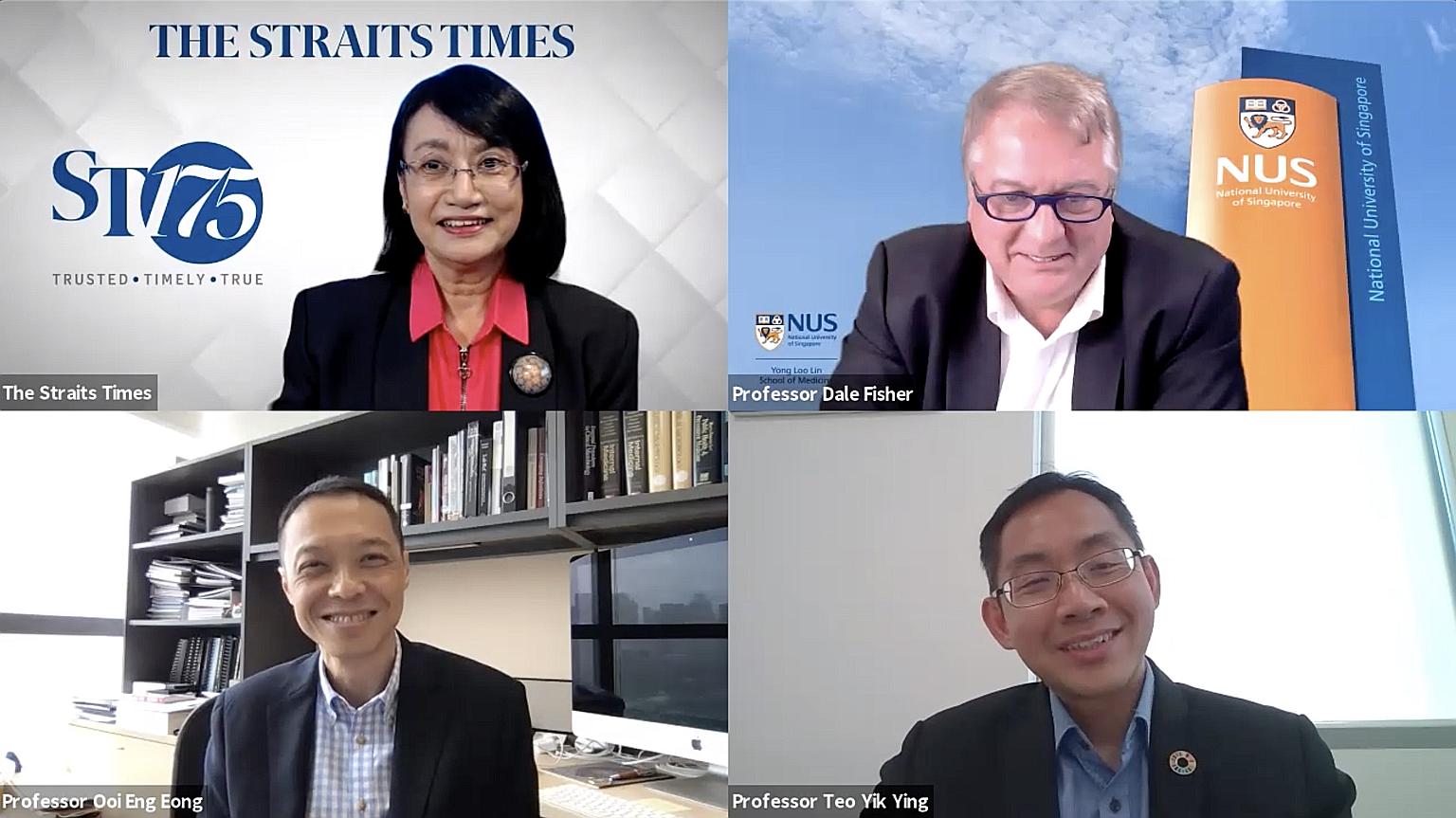Coronavirus: Important to consider who will get vaccination priority
Sign up now: Get ST's newsletters delivered to your inbox

(Clockwise, from top left) ST senior health correspondent Salma Khalik moderating a webinar on July 23 that featured Professor Dale Fisher, Professor Teo Yik Ying, and Professor Ooi Eng Eong.
PHOTO: THE STRAITS TIMES
Even when a vaccine becomes available, its supply will not be enough to immediately vaccinate the whole of Singapore, Professor Dale Fisher, a senior infectious diseases expert at the National University Hospital, said yesterday.
Hence, it is important to strategise which groups are to get priority when rolling out the vaccine, he added. It is commonly held that the most rational approach is to start with the elderly as they are the most vulnerable and likely to fall seriously ill when infected. Alongside them are those with weak immune systems.
Prof Fisher, however, said his top priority is to first vaccinate the staff of nursing homes.
"Nearly all the nursing home outbreaks are a result of a staff member introducing (the virus). So, in fact, this is an important discussion in terms of the strategy," he noted.
But even before drawing up a list of who should go first, experts need to get hold of a vaccine and understand how it works,Prof Fisher said.
One issue that may come up when vaccinating younger people is the immune system's response, he noted, citing the emergence of serious inflammatory symptoms, which are similar to Kawasaki disease, in children with Covid-19 in the United States and Europe.
This is a "whole new world in terms of safety" that will have to be considered, he said.
A further concern he expressed is the possible pressure to shorten clinical trials and rush a vaccine to production. This may give rise to other risks.
Professor Teo Yik Ying, dean of the National University of Singapore's Saw Swee Hock School of Public Health, agreed.
A rushed vaccine, he said, may not be optimal.
It may also pose challenges to other potentially superior vaccines that are still undergoing trials and tests because the world would gravitate towards the first available solution.
The first vaccine must therefore be properly developed with considerations for both its effectiveness and safety, Prof Teo added.
But Professor Ooi Eng Eong, deputy director of Duke-NUS Medical School's emerging infectious diseases programme, did not think having different vaccines would pose a major problem in the light of the size of the problem.
He noted that the first polio vaccine stopped the symptoms but did not prevent people from being carriers of the polio virus. The second polio vaccine, which was a live vaccine as opposed to an inactivated one, prevented people from carrying the virus.
But that did not make the first vaccine obsolete, he said.
"Most parts of the Western Pacific have got no more polio transmission, so using a live vaccine becomes a little bit of a problem because this virus is still alive, so it can still cause infection.
"So, now, we are all switching back to the inactivated vaccine because of public health reasons."


